Panasonic factory coming to Kansas in state's largest ever economic development project
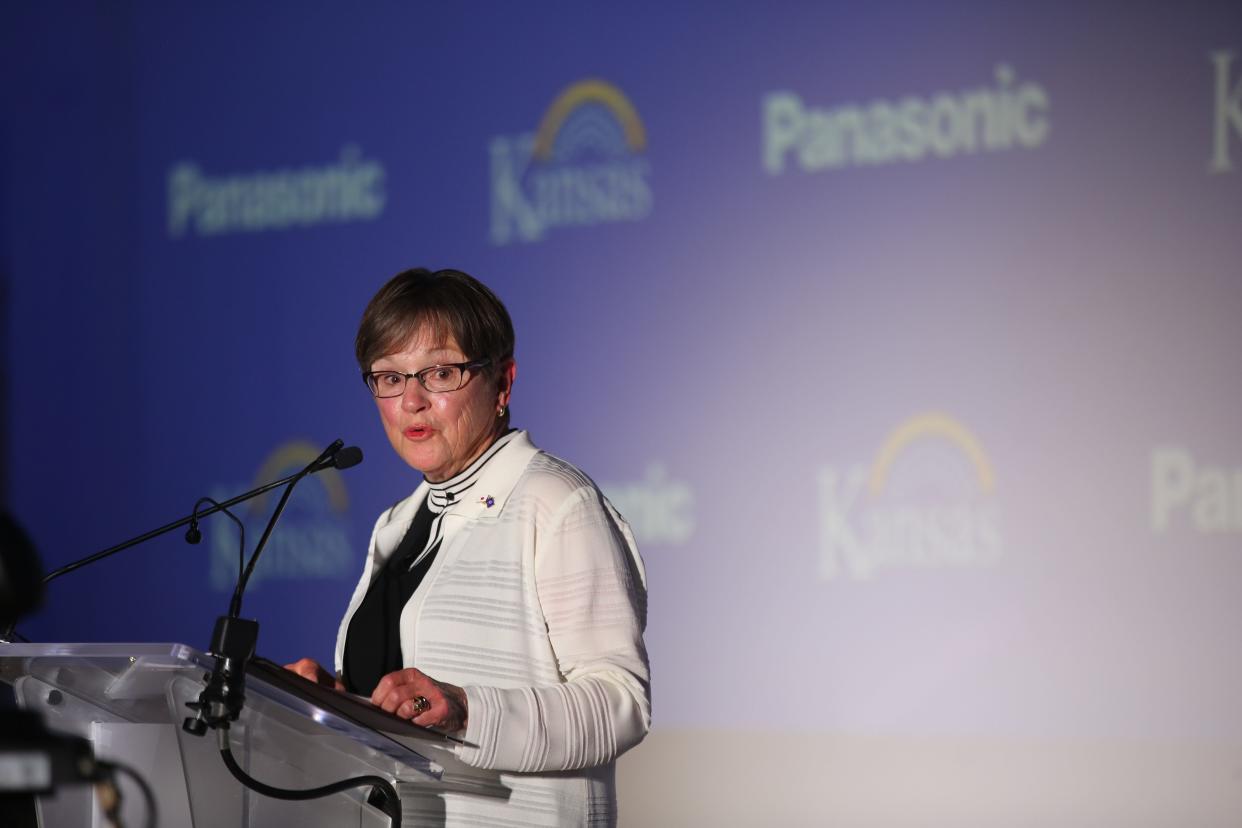
- Oops!Something went wrong.Please try again later.
- Oops!Something went wrong.Please try again later.
A $4 billion Panasonic plant for electric vehicle batteries is set to come to Kansas, state officials announced Wednesday, in what they are calling the largest economic development project in the state's history.
Trumpeted as a massive economic win for the state by Gov. Laura Kelly, business officials and legislative leaders, the move was also shrouded in darkness, with a vote on the proposed deal occurring only after a closed-door discussion on its terms.
But the governor and Lt. Gov. David Toland framed the move as an unqualified success, with Kelly's administration estimating a $2.5 billion economic impact annually from the project.
"Kansas is no longer an aw shucks, humble, sort of flyover state," Toland said. "We can compete with anyone and we can say, loudly and proudly, that Kansas is the best state in the nation for business investment."
Kelly's office estimates the state's portion of the incentive package to total $829.2 million, a different figure than the estimated $1.2 billion in cost given to lawmakers when they passed a sweeping new incentive program designed to attract projects like the Panasonic deal.
The project would bring in an estimated 4,000 direct jobs and as many as 4,000 additional, indirect positions, according to a Wichita State University analysis of the deal commissioned by the Department of Commerce. Median salary would be $50,000.
The formal announcement came less than an hour after a panel of Kelly and top legislators, called the State Finance Council, unanimously signed off on the deal.
Kansas leaders discussed details behind closed doors before vote
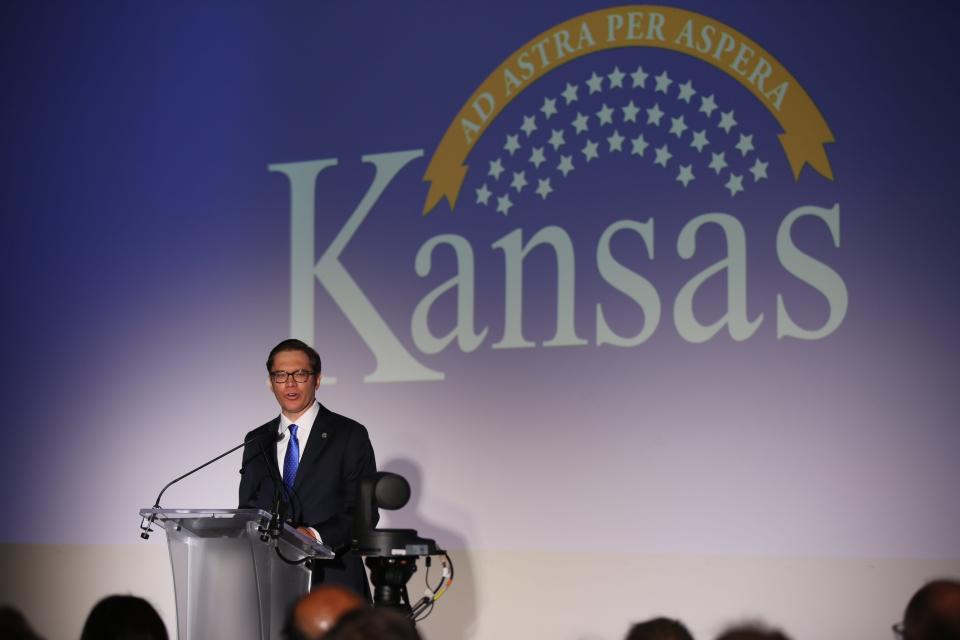
That vote came after 45 minutes of closed-door discussion, which occurred over the objection of media members, and with no firm details of the agreement made public and no acknowledgement as to the specifics of what was being voted on.
Lawmakers passed the incentive framework earlier this year to attempt to lure the Japanese firm, though the company's identity and the project details weren't public at the time and many legislators complained about not knowing what they were voting on.
Rep. Troy Waymaster, R-Bunker Hill, chair of the House Appropriations Committee, said the deal wasn't a major departure from the framework passed by lawmakers, though it was tweaked in some ways to satisfy the company.
While he conceded the appearance of opacity over how the deal was approved, he said he believed it to be a good deal for the state.
"I would contend that it'll be very beneficial to the state of Kansas as well," Waymaster told reporters. "And so, in respect of the company, we do have to keep it confidential until it is released."
Panasonic chose between Tulsa, Okla., and De Soto for location
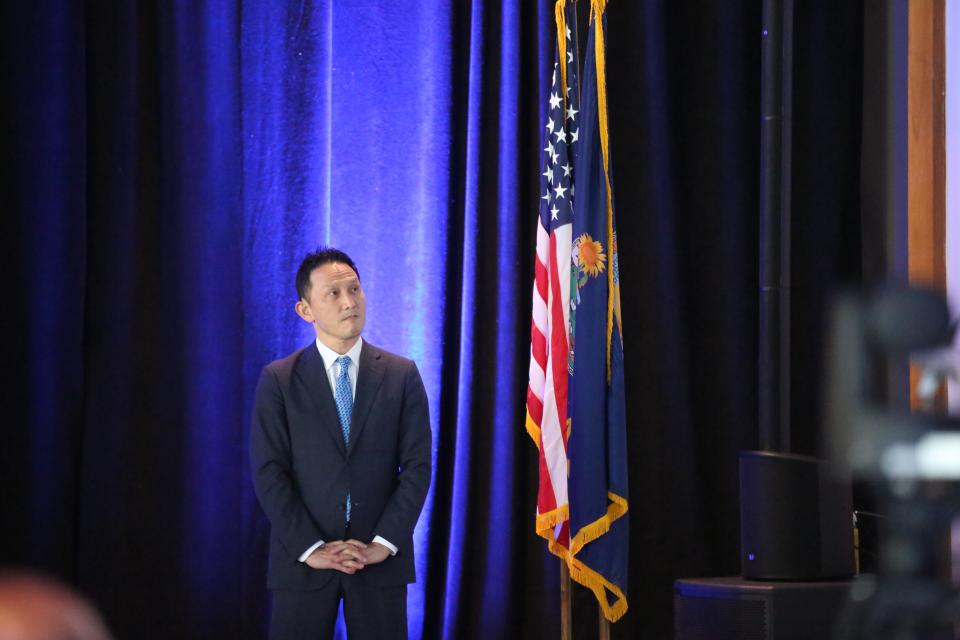
The state was doing battle with Oklahoma, with Panasonic also considering a Tulsa-area site. The facility will make batteries for such clients as Tesla's slated electric vehicle factory in Texas and, potentially, other automotive manufacturers.
"We will provide critical production capacity to one of the fastest growing and most exciting industries in the world," Kris Takamoto, executive vice president of Panasonic Energy, said at the deal's announcement.
The site of the factory will be in De Soto, where city officials approved a measure relaxing zoning restrictions earlier this week to help the company take advantage of the shuttered Sunflower Army Ammunition Plant.
"A new facility of this size is transformational, not only for Johnson County, but also for the surrounding area and actually the entire state," Kelly said.
Officials believe the deal's impact will reverberate across the state, with suppliers across Kansas benefiting.
That was the logic in creating a new incentive program for large development projects, with the centerpiece being a refundable 15% tax credit on the entire investment a company makes in Kansas of over $1 billion within a five-year period.
More: Boon or boondoggle? Experts sound alarm as lawmakers attempt to lure mystery megaproject to Kansas
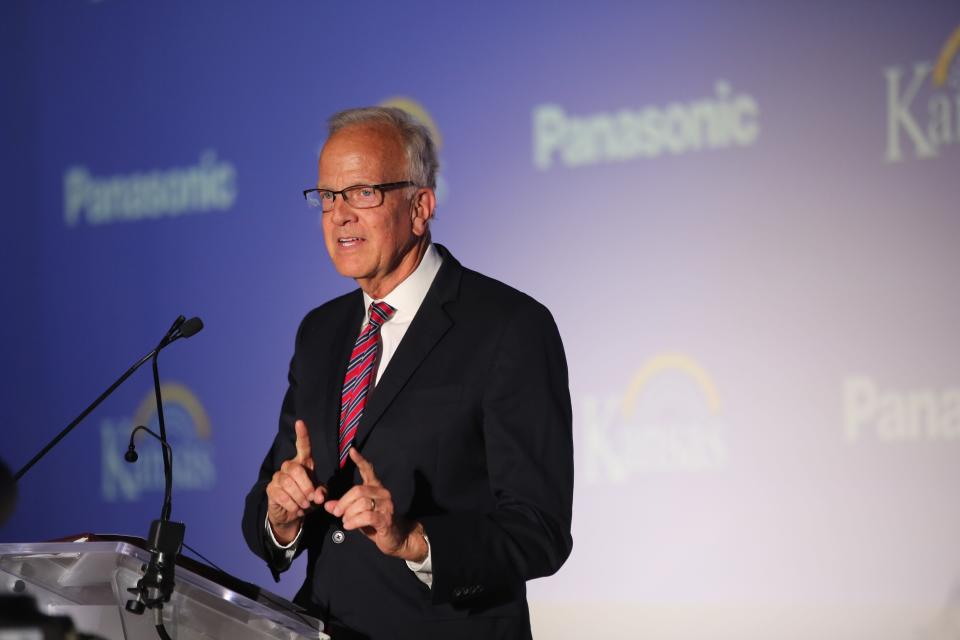
Moreover, between 7.5% and 10% of payroll costs may be refunded for the first decade of the project and a company can also see a set amount of training and relocation expenses reimbursed per year, for up to five years.
And incentives will also be available for five suppliers handpicked by the company, provided they make $10 million of sales to Panasonic in a given year. That structure — largely unique to the Kansas deal — is intended to build a self-contained supply chain for the battery manufacturing, officials have said.
U.S. Sen. Jerry Moran, R-Kan., said rural Kansas areas, such as the Rooks County community he hails from, would benefit from the project as much as the Kansas City metro region.
"This benefits every community in Kansas," he said. ""No legislator in the state legislature ought to think that they passed something that benefits one region, one county, one city."
Kansas incentive project with Panasonic totals about $829 million
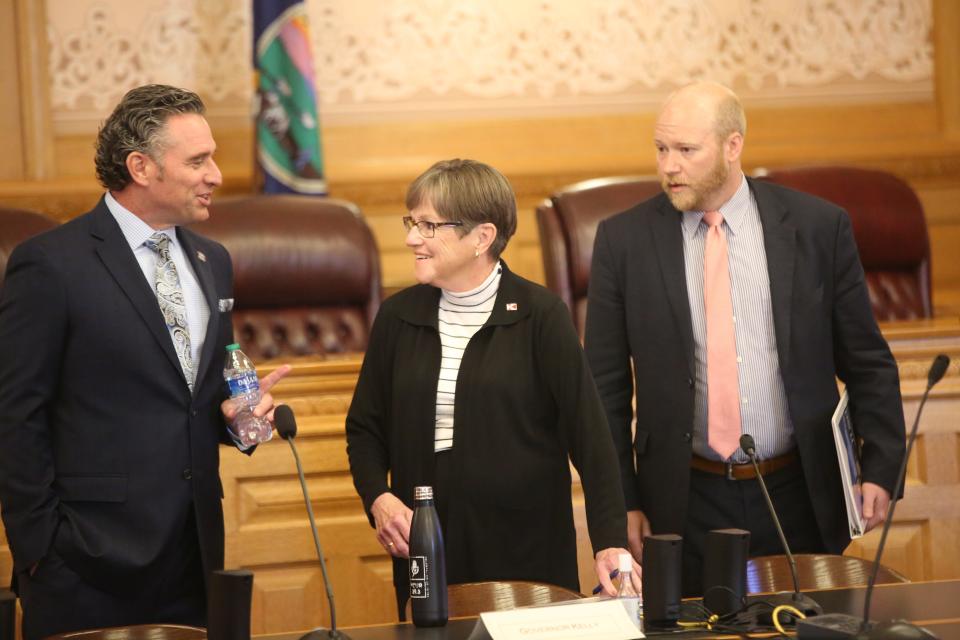
Kelly's office reports the state's portion of the incentive package totals $829 million, with the largest portion being the $500 million investment tax credit. That credit is paid out over a total of five years.
Oklahoma’s proposal, by contrast, was $698 million, though further local incentives could have been offered on top of that amount.
But that proved to be a hang-up. Officials in Oklahoma were targeting the MidAmerica Industrial Park in Pryor, but Mayes County voters wanted to put a tax increment financing proposal, which would have added onto the incentive package, on the ballot in November.
Senate President Ty Masterson, R-Andover, said economic headwinds, including the rising cost of materials, almost derailed the project entirely. It was responsible for delaying the project's announcement, which was initially slated to come by the end of March.
"That's a massive investment," he told reporters. "And the Japanese are typically very conservative in what they do. I think the only reason it's still happening even amongst the inflation is they have such a heavy demand on their product."
Kansas' incentive package was met with resistance over concerns that similar megaprojects elsewhere haven't lived up to the hype, though the state can retrieve incentives if the company fails to meet its targets.
States across the country have splashed out taxpayer funds for similar projects, including a proposed Intel microchip plant in Ohio and several electric vehicle manufacturing factories.
Some Kansas legislators objected to use of public money
Sen. Caryn Tyson, R-Parker, said questions remain. She argued it was a slap in the face for Kansans hit hard by inflation to have the state give public money to a large corporation.
Tyson unsuccessfully attempted to alter the deal, making the tax credit nonrefundable, a move that would in essence limit the state's payout.
"The cost of utilities, fuel, food, medicine, everything is going up," she said. "And we're writing a check to a foreign company to come to Kansas. We need to put Kansas first."
When the bill was passed, Rep. John Carmichael, D-Wichita, said he realized he might have "egg on his face" for voting no, if the state wound up getting the project.
But while he praised the Kelly administration over the deal, he said he stood by his concerns about whether the company keeps up its promised end of the bargain.
"I'm a team player. When my team wins over OU or Oklahoma, I'm always pleased by that," Carmichael said. "And so I commend them on their success. The question will now become, though, over the next several years, does this project and those administering it, do they live up to their promises?"
There is no firm timeframe for when the facility might be completed. Previous reporting had suggested Panasonic would begin manufacturing the batteries, which are more powerful than their current offerings, at a Japanese plant by 2024 before shifting production to the United States.
The move is likely to be promoted as a coup for Kelly's administration, which has made economic development a core pillar of her re-election strategy against presumptive GOP nominee Attorney General Derek Schmidt.
"We won and largely Democrats won," said Rep. Stephanie Clayton, D-Overland Park. "The different thing about the narrative now is Democrats are the party of pro-business."
But Masterson said the entire state — and a bipartisan group of officials — could bask in the glow of the announcement.
"Victory has 1,000 fathers, right, we're all going to claim victory," Masterson said, referencing a John F. Kennedy quote. "And I know, we'll see this in campaign ads and things. But the answer is it is bigger than that. This is generational for Kansas."
Andrew Bahl is a senior statehouse reporter for the Topeka Capital-Journal. He can be reached at abahl@gannett.com or by phone at 443-979-6100.
This article originally appeared on Topeka Capital-Journal: Kansas to get Panasonic electric vehicle battery plant location

